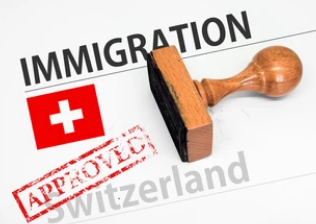Under Swiss law, there are only two different paths for non-EU nationals who wish to settle in Switzerland and obtain a residency permit by investing money into the Swiss economy: either (i) establish a thriving and sustainable business in Switzerland or (ii) to negotiate a tax-lump sum agreement with the canton of interest.
Establish a thriving and sustainable business in Switzerland
As a first alternative, a non-EU national could obtain a L or B permit through a self-employed activity in Switzerland. To this purpose, tight requirements must be met to benefit the local economy and only a few permits are available for such options (see art. 19 LEI).
The key point lies in the admission of the non-EU national responding to Switzerland’s economic interests. This must be supported by a solid business plan demonstrating in detail how and why the business will be financially sustainable and beneficial to the local economy by creating employment opportunities at the local level.
It is also required that the non-EU national have an adequate and independent source of income in order not to depend on any governmental help. The requirement of the full-time presence in Switzerland of the applicant must also be demonstrated.
More importantly, the presence of the foreign entrepreneur must have the potential to create jobs in Switzerland and generate high revenues for the canton in terms of taxes.
Negotiate a tax-lump sum agreement with the canton of interest
The Law on Foreigners and Integration (LEI) opens the door to another specific case when it comes to investment in Switzerland. Indeed, the canton might take into consideration “major public interests” (see art. 30 §1 b LEI).
However, this concept tends to be interpreted extremely narrowly, meaning that the non-EU national’s contribution to the canton must be significant (see art. 32 §1 c OASA). This option lies in an agreement between the non-EU national and the competent authorities of the concerned canton based on the foreigner projected spending and an annual tax package, considered as an investment in local economy. As a corollary to this exception, the non-EU applicant is not authorized to work in Switzerland.
Conclusion
Finally, it is important to keep in mind that Switzerland does not offer a right for non-EU citizens to settle in Switzerland through investment. Most particularly and contrary to the practice in other European countries, no importance is given to the simple fact of investing money or holding shares in a Swiss company when it comes to applying for a Swiss permit. It will be up to the discretionary power of the canton to evaluate the amount invested and the importance of the investor in contributing to the local economy.
13/06/21 – Sophia Ouadouri and Alexa Mossaz, Legal Expat




